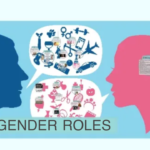Abstract:
Education plays a crucial role in shaping individuals and societies, and educational approaches significantly impact learning outcomes, student engagement, and overall educational effectiveness. This research delves into various educational approaches, from traditional methods to innovative strategies, examining their strengths, limitations, and implications for teaching and learning. Drawing on interdisciplinary perspectives from education, psychology, sociology, and technology, this study aims to provide a comprehensive analysis of educational approaches and offer insights for enhancing educational practices in diverse contexts.
- Introduction
1.1 Importance of Educational Approaches
1.2 Objectives of the Research
1.3 Scope and Structure of the Study - Traditional Educational Approaches
2.1 Lecture-Based Instruction
2.2 Teacher-Centered Approaches
2.3 Textbook-Centric Learning - Student-Centered Approaches
3.1 Inquiry-Based Learning
3.2 Problem-Based Learning
3.3 Project-Based Learning - Technology-Enhanced Approaches
4.1 Blended Learning
4.2 Flipped Classroom Model
4.3 Online Learning Platforms - Experiential and Alternative Approaches
5.1 Experiential Learning
5.2 Montessori Method
5.3 Waldorf Education - Multicultural and Culturally Responsive Approaches
6.1 Culturally Relevant Pedagogy
6.2 Indigenous Education Models
6.3 Global Education Initiatives - Specialized Educational Approaches
7.1 Special Education Strategies
7.2 Gifted Education Programs
7.3 Vocational and Technical Education - Innovations in Educational Approaches
8.1 Gamification and Game-Based Learning
8.2 Personalized Learning Paths
8.3 Artificial Intelligence in Education - Challenges and Opportunities
9.1 Implementation Challenges
9.2 Equity and Access Considerations
9.3 Teacher Training and Professional Development - Impact and Implications
10.1 Learning Outcomes and Student Achievement
10.2 Engagement and Motivation
10.3 Socioemotional Development
10.4 Preparation for Future Workforce - Future Directions and Recommendations
11.1 Integrating Educational Approaches
11.2 Research and Evaluation
11.3 Policy Implications and Systemic Changes - Conclusion
12.1 Summary of Key Findings
12.2 Implications for Educational Practice
12.3 Call to Action for Stakeholders
References
This research provides a comprehensive examination of educational approaches, spanning traditional methods to innovative strategies, and their impact on teaching, learning, and student outcomes. By exploring diverse approaches and considering their implications for educational practice, policymakers, educators, and stakeholders can work towards creating more inclusive, effective, and equitable educational systems.


